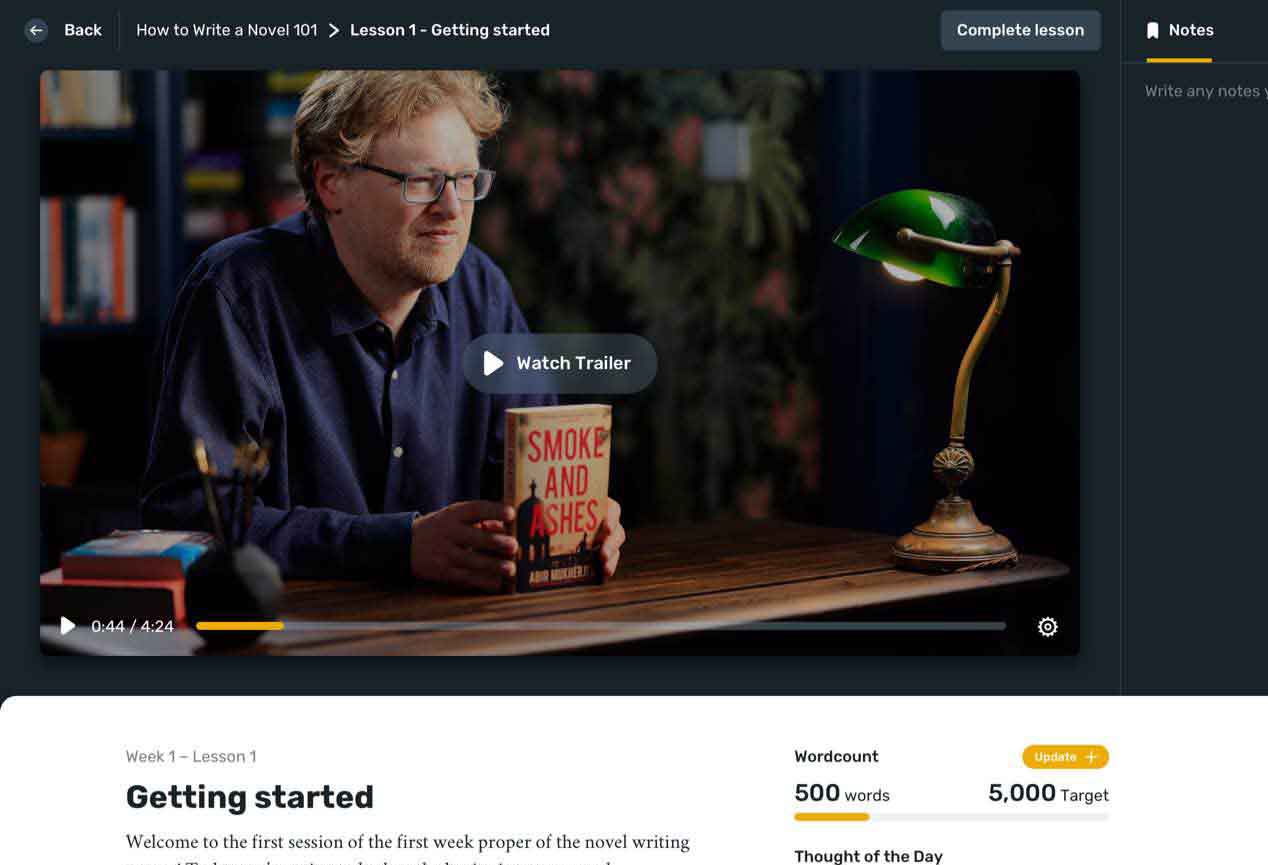Find the perfect editor for your next book
Over 1 million authors trust the professionals on Reedsy. Come meet them.
Write a list of images you associate with your theme. Now do the same for each of your main characters. Keep these images in mind as a way to present your theme metaphorically through symbolic motifs.
Feel inspired? Share your story below.
Get your creative juices flowing with these similar writing prompts.
What is your story's hook? Analyze your opening scene and identify the implicit but specific question it encourages readers to ask. Is this question in the first paragraph or, better yet, the first line? How can you strengthen it?
Sometimes writers think up a character and jump straight into writing, without fully fleshing out the concept at a foundational level. This then means they falter and end up writing a very confused draft. I call this 'The Story Swamp.'Avoid The Story Swamp by writing a 'logline' or 'pitch' of approximately 25-60 words. This logline should cover what B2W calls The 3 Cs:Character: Who is your protagonist? What does s/he need or want?Conflict: Who is the antagonist? Why does s/he want to stop or counter your protagonist? What other obstacles are in your protagonist's way?Clarity: Do we know what genre or type of story this is? Are you using familiar or clich_d language? Are your word choices too vague?
How do you start a story - or get a story back on track? If you're feeling lost or blocked, try templating to get your plot on course.Here's what to do: bullet point your initiating incident, your rising action, your crisis, and your resolution for both your main plot and subplots. Make a table to see events running parallel, remembering subplots exist to enhance, complicate _ ultimately, compliment _ your main action. Listing like this highlights any irrelevancies, keeping your tale on track, and makes all you write intertwined and significant to your protagonist's journey. Plan out using this framework as your reference.

NEW VIDEO COURSE
How to Write a Novel
Your story matters. Unlock your potential with daily video lessons from bestselling ghostwriter Tom Bromley, and finish your first draft in just 3 months.Learn more →
If you're working on a novel or short story, write a pivotal scene from an outside observer's perspective who has no role in the story.
There's one powerful motivator that led your reader to your book - curiosity. Our brain doesn't stop asking questions because it knows that's how it learns and evolves. Questions raise uncertainty. Unknowns. And if there's an unknown, then humans want to make it known. There will be a big question that drives your story, so take a couple of minutes to consider the mother-question that propels your book from beginning to end.Your manuscript also needs to be powered by lots of little questions. Your book will need a variety of whos, whens, whys, and wheres to keep your reader engaged. In fact, every scene in your book needs to have a question define it. It's what will keep your reader turning those pages. Review each of your scenes and identify the question/s hanging over it, because once you nail that, their mind will be asking the most important question of all - what happens next?